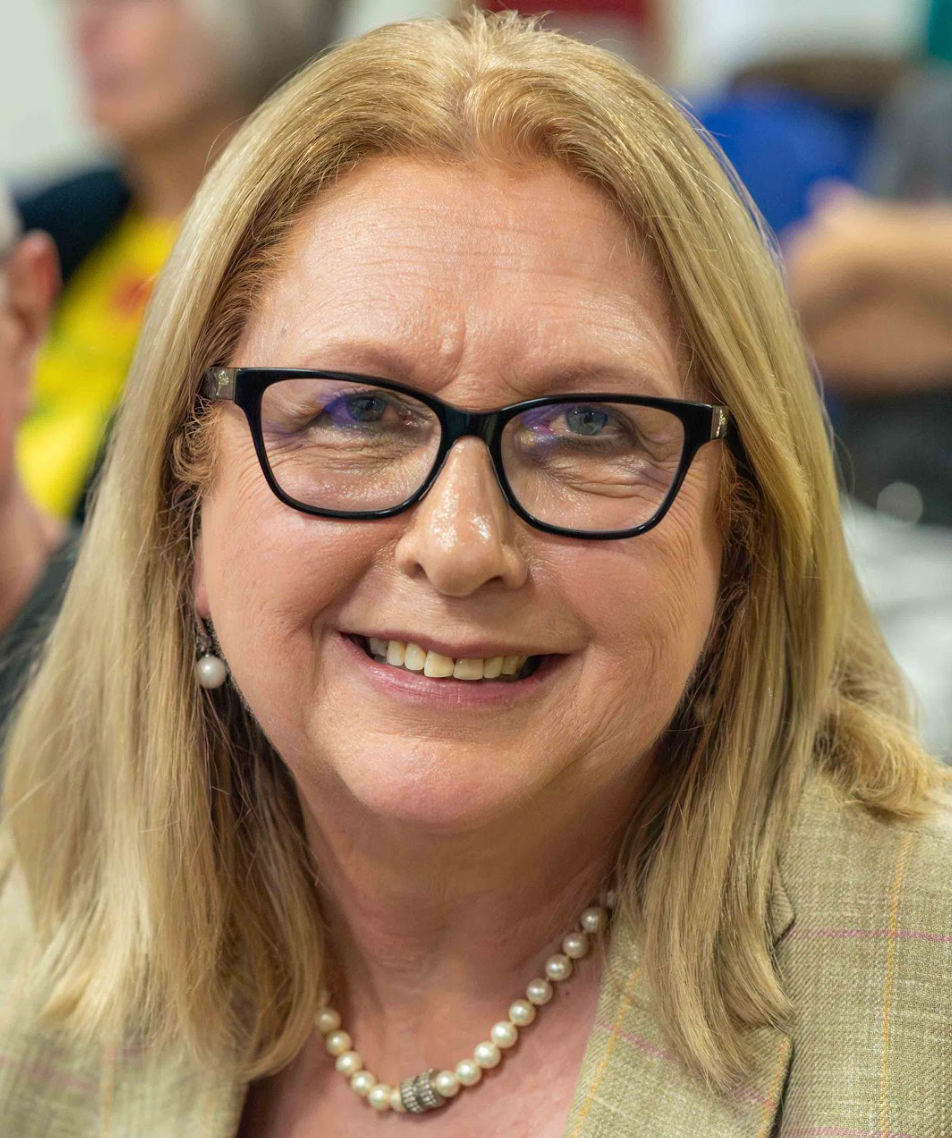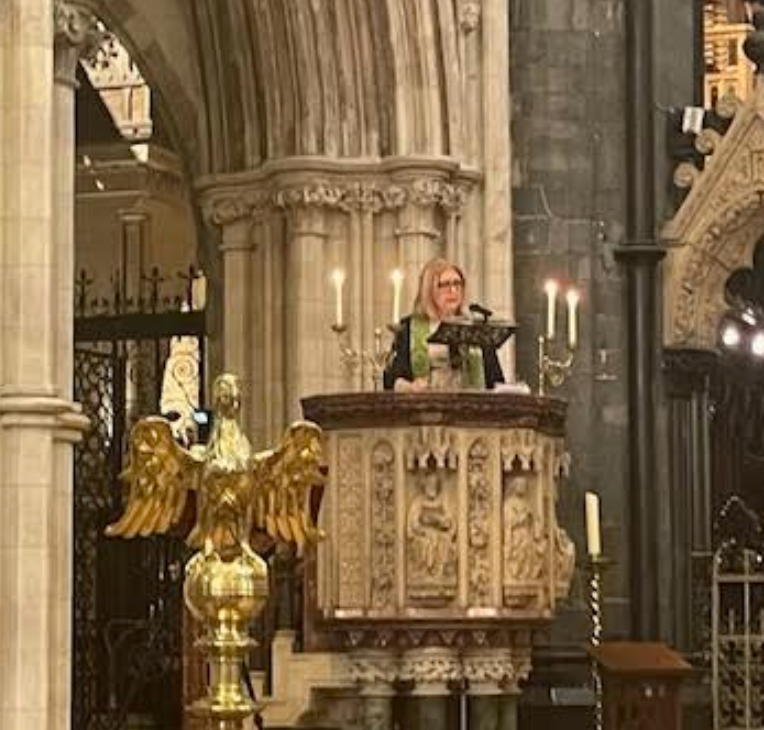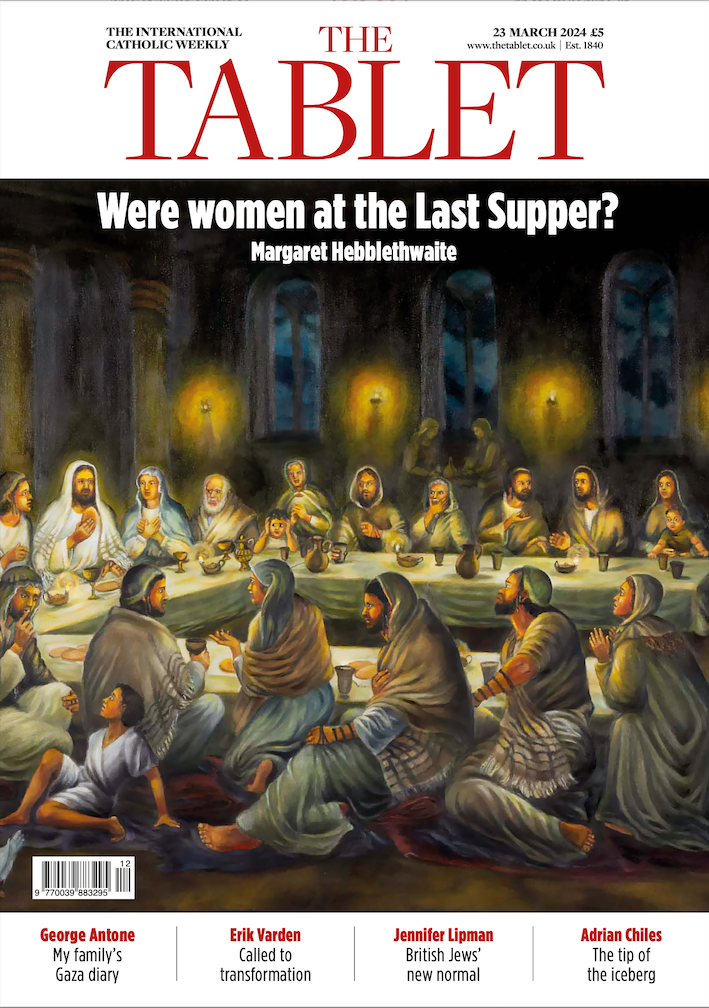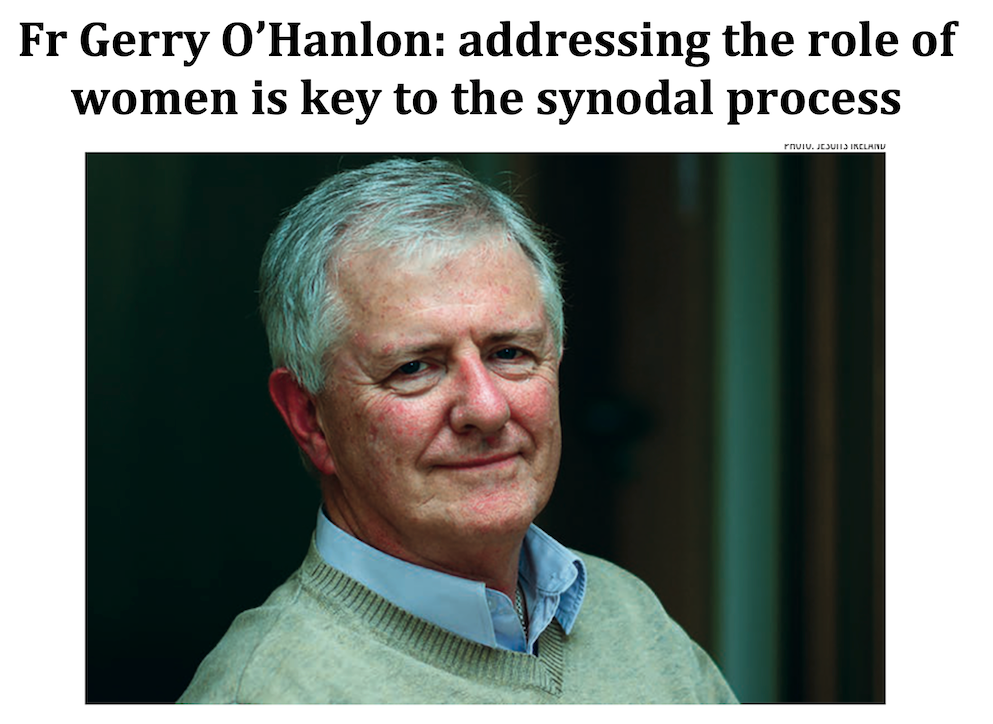Blog Layout
Root & Branch: THE BRISTOL TEXT
Colm Holmes • 12 September 2021
The Bristol Text is offered as a contribution to the Bishops’ Synodal Process and to Catholics around the world as part of our common preparation for Rome in 2023. It is also intended to give confidence to individual Catholics, to form our own thinking, learning, decision-making, conscience and practice.
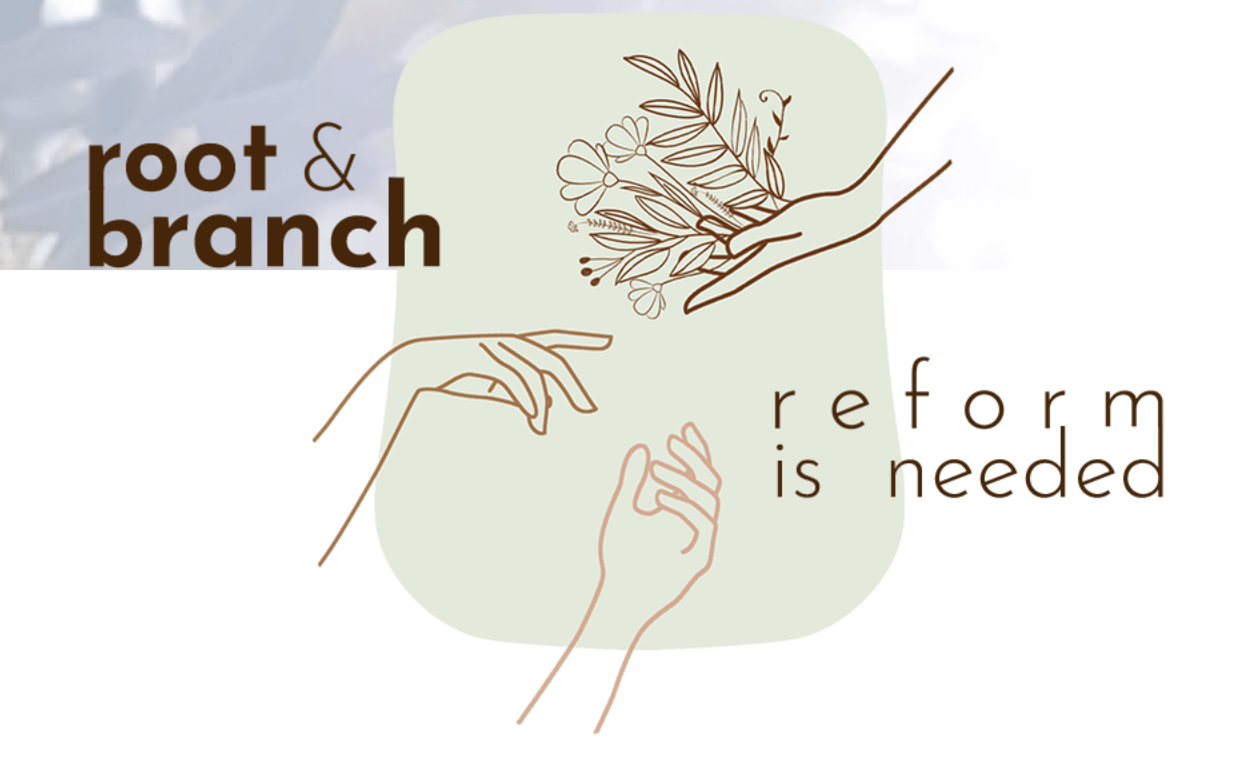
Redefining and reclaiming Liturgical Ministry
1. Every baptised person is clothed in Christ
Galatians 3:27
‘There is, therefore, in Christ and in the Church no inequality on the basis of race or nationality, social condition or sex, because ‘there is neither Jew nor Greek: there is neither bond nor free: there is neither male nor female. For you are all one in Christ Jesus.’ (Lumen Gentium 32, Vatican II).
‘Whoever wants to be first must be the last of all.’ (Mark 9:35)
2. The Church is the community of God
‘For when two or three are gathered in my name, there am I among them.’ (Matthew 18:20) It is not an individual, but the community of saints, living and dead, who celebrate the act of thanksgiving to God, which is the Eucharist.
Words and symbols belong to the broader ritual experiences of the people, not to the rubrics of a few.
3. The Holy Spirit’s call to ministry may be heard by all people
All the baptised are eligible to answer God’s call to every ministry. That call is discerned within and by community of God.
Current research makes it clear that in the earliest Christian gatherings, women and men, single and married, led communities in worship, exercising their baptismal calling.
Embracing Diversity
1. Hierarchy distorts the beauty of diversity
Affirming diversity is imperative for attesting the dignity and sanctity of every form of life, valuing the uniqueness and contribution of each person.
This calls for a radical re-imagination of the way of being Church, as it has become predominantly a hierarchical institution structured on an all-male leadership.
2. Engage with the complexity of sex/gender
Church teaching on sex/gender is confused and contradictory. There is, in effect, no public policy.
Male-female binaries are institutionalised through the historical understandings of ‘family life’ and ‘natural law.’ Transgender individuals challenge sex/gender binary norms, but scientifically we know that sex/gender is complex and that we also establish our identities through the stories we tell.
The Church needs a pastoral response to diverse family forms. It needs to think more deeply about its gender ideology.
3. Redefining ‘we’
For many Catholics evangelization implies being truth tellers in one sphere and liars in another, making available an ‘objective’ Gospel that does not touch who we are. Our bodies and our spirits long for truthfulness, and come alive when we allow them to bear witness to it.
That means the construction of the new Catholic ‘we’ depends on all of us learning to preach the Gospel in the first person, singular and plural. We learn to see ourselves in our differently-aged, differently-abled, differently-gendered, differently-bodied, differently-sexually-oriented, differently-coloured, differently-tongued neighbour. Our similarity, not our difference is what counts.
4. Accountability and apology
Accountability means taking responsibility for the ways in which our beliefs, theology and practices have contributed to the dehumanization and persecution of many people who are seen as ‘other’.
‘What have you done? Listen. Your brother’s blood cries out to me from the ground’ [Genesis 4:10]. The words spoken to Cain after killing his brother Abel point to the critical need for accountability, restitution and transformation as we seek to restore the dignity and rights of all persons as equal.
Then the harm done can be acknowledged in ways that include the participation of those harmed, creating affirming, equality-expressing theologies where no one is excluded and all are equal.
Moral Theology
1. Historical consciousness
The Gospel speaks of a seed which, once sown, grows by itself. ‘The Church has to accept this unruly freedom of the word.’ (Evangelii Gaudium 22). Appeals to unchanging laws and unchallengeable authorities stifle this creative freedom.
This calls for faith that continually evolves to meet the challenges of different contexts and cultures.
2. Continuous formation in dialogue
We propose that, rather than asserting authoritative moral rules to be obeyed, church teaching should be concerned with ways of thinking, helping us to see our lives as a process of continuous Christian formation along the path ‘of wisdom, self-fulfilment and enrichment’ (Evangelii Gaudium 168).
This moral vision is therefore not defined by lists of sins to avoid but by the endeavour to live as faithful disciples in a complex world, witnessing to God’s love for all creation. The Good News is ‘marked by joy, encouragement, liveliness … readiness for dialogue, patience, warmth and welcome which is non-judgmental.’ (Evangelii Gaudium 165)
3. A holistic vision
We call for a holistic vision of the good life that is not dominated by issues of sexuality, but seeks the flourishing and dignity of the entire person.
This means rejecting all forms of exploitation, abuse and violence, and encouraging each individual to discover their personal vocation to holiness. It is our living response to the prophetic vocation to act justly, to love mercy and to walk humbly with our God. (Micah 6:8)
Church Authority
1. Equality and justice for all
Jesus preached the Good News of the historical advent of the Kingdom of God, which brings justice and peace to all human beings, and liberation to the oppressed.
For the Catholic Church to cooperate with God’s Kingdom, it needs to model its organizational structure, and its Canon Law, on those principles of equality and justice for all.
2. Agreed by all
‘What touches all must be discussed and approved by all.’
By virtue of their common baptism, all adult Catholics have the fundamental right to participate and vote in all decisions on matters of doctrine, value, action, and any other issue concerning the common good of their community.
At every level, representative democratic councils should serve as the principal decision-making bodies, with the inalienable right to determine what falls within their competence. Discernment belongs to all. It cannot be confined to the few.
3. Elected by all
‘The one who is to preside over all should be elected by all.’ Legitimate authorities in the church must be based on the consent of the people. The church community has the right to evaluate, approve, and commission all those putting themselves forward for a ministry.
Every adult Catholic has the right to vote for, and to be eligible as, a candidate for any church ministry. All Catholics also have the right to have their leaders render an account to them.
THE BRISTOL TEXT was presented at the Root & Branch Lay-led Synod 5 – 12 September 2021
Share
Tweet
Share
Mail
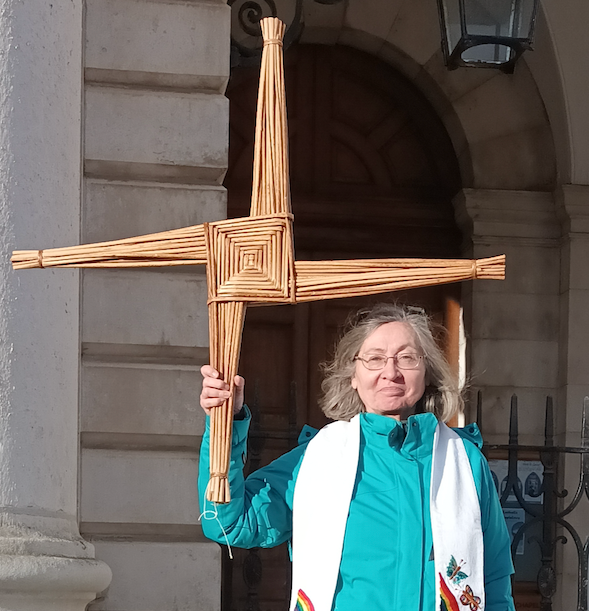
by Soline Humbert
•
25 February 2025
A reflection by Soline Humbert for the Women’s Ordination Conference Retreat “Hidden Springs, Holy Radiance” 9 February 2025 [ see recording on YouTube https://www.youtube.com/watch?v=szP5h1kzEsU ] We have been gathering over the past three days in the presence of Brigid of Kildare, and I am sure she has brought gifts to each one, for my experience is that she is attentive to our needs and very generous with her help. At this stage I just want to share some of my own life journey with Brigid. I first encountered her in 1969 when I came from France to Ireland as a child on holidays to learn English. I went to a small Irish town called Tullow. As it happens it was in Tullow that on the first of February 1807 the order of nuns of St Brigid which had been dissolved at the Reformation, had been refounded by a far-sighted bishop. Symbolically an oak sapling had been brought from Kildare Town, from the church of the oak, to Tullow and planted in the grounds of the Brigidine convent where I took English classes. It was by then a majestic oak tree. It still stands to this day. Coincidentally and somewhat ironically, 1969 was also the year that Pope Paul the 6th removed St Brigid, along with 193 other saints, from the Universal Roman Calendar of saints. The reason being that there wasn’t enough evidence for her existence! That despite the fact she was the most mentioned Irish person in the writings of several centuries after her death... What was true was that her flame had been somehow extinguished, and her importance diminished in a deeply clericalised and patriarchal church as Ireland was at the time. She was in the shadow of St Patrick and very much the secondary patron Saint, reflecting the secondary position of women in general. But change was slowly happening. Having discovered in myself a vocation to the priesthood I eventually co- founded a group for women’s ordination and launched a petition to open all ministries to women in February 1993. At the very same time, which I consider providential, the flame of St Brigid was rekindled by the Brigidine sisters in Kildare Town. Women were stirring after a very long wintertime in the church and in society and becoming more fiery. Brigid with her torch was blazing a way for equality. It is then, and only then, that I came across the story of her ordination as a bishop and I remember my astonishment for I had never read anything like that before, or since, for that matter. Of course, while this fact was mentioned in many of the lives of Brigid going back to the first millennium it had been quietly left out of the pious descriptions of her life which were fed to the people. The way the story is recounted makes it clear that her ordination was considered to be very much the doing of the Holy Spirit. Objections about her gender were voiced but powerless to negate what God had done. It reminds me very much of the passage in the Acts of the Apostles when St Peter is amazed to discover that the Holy Spirit has descended on Cornelius, a gentile, and which leads him to conclude that “God has no favourites”. Brigid’s episcopal ordination at the hands of a bishop overcome by the Spirit is also a powerful affirmation that when it comes to ordination God has no favourite gender. Her ordination’s divine origin shows that Brigid was a bishop because God ordained it, and her. A very subversive truth our Church has yet to learn... As we campaigned for women’s ordination we made sure that this episode from Brigid’s life was brought into the open, again and again, despite clerical efforts to dismiss this dangerous historical memory as pure legend and keep it buried. Interestingly when the Anglican Church of Ireland, (Episcopalian) ordained their first woman bishop in 2013 it was to the diocese of Meath and Kildare! A very symbolic act. I have often gone to St Brigid’s Well in Kildare, a little oasis of peace, to spend some time with Brigid and re-source myself by the gently flowing water. After the First Women’s Ordination Worldwide Dublin international Conference in 2001 I went there again on the anniversary of my baptism and I hung my purple stole on a tree overlooking the well. I had worn that stole for many years as a sign of waiting. From now on I would wear stoles of other colours. And a few years ago, I found myself back in Tullow, as a guest speaker at the invitation of the Brigidine sisters for an international celebration. It was very moving to be able to speak of my calling to priesthood in the place where the order of St Brigid had been revived and where I had first come as a child half a century beforehand! That day I sensed very much the presence of Brigid the bishop and I was filled with joy and gratitude. In some ways we can say St Brigid has risen up and is leading the way for women to rise up. Although a woman in what was very much a man’s world and a man’s church, Brigid exudes a remarkable confidence in her being, in her words and in her actions. No doubt that confidence was rooted in a deeply contemplative life nurtured by prayer. “From the moment I first knew God, I have never let him out of my mind, and I never shall”. She embodies the authority which stems from being filled by the Spirit and a leadership at the service of peace, justice, hospitality to the strangers, charity to the poor and marginalised, reconciliation, healing and harmony with creation and care of the earth. The two Scripture readings we have just heard are very fitting for she was renowned for her practical care and generosity to those in need or suffering. Like Christ, she went around doing good. I must not be the only one who saw and heard in Episcopalian bishop Mariann Budde’s recent words the spirit of St Brigid as she used her God- given authority to plead for mercy for the people in vulnerable situations in the face of unbounded cruelty. Brigid is a bold, dynamic presence. She is said to be a woman of the threshold, of liminal places, and she is a sure guide for our times when we also are in transition on the threshold of a new church and a new world too. She calls to us to step boldly forward with our torches burning brightly, bringing the light and warmth of God’s Love to a world gone cold in the grip of darkness and despair. Her life reminds us that with “God nothing is impossible” and to expect miracles. I shall end on a light- hearted note: I went on pilgrimage to St Brigid’s Well and Solas Bhride in Kildare last Tuesday to prepare for this retreat. On the way back from the well and driving through the wide expanse of the Curragh where thousands of sheep graze freely I started seeing a multitude of rainbows. It reminded me of one of the many whimsical stories about Brigid: Caught in a rainstorm, she hangs her mantle on a sunbeam to dry. Dripping from its edges, colourful rainbows form in the water droplets, and her mantle is ‘bright’ with colour. Lady, from winter’s dark, Star of Imbolc, rise! Dance across our threshold: Scattering warm laughter Seeds of hospitality, Tolerance, forgiveness! Return again to the folk: You the Spring we yearn for! (Tom Hamill)

Women are a problem for the Catholic Church, an institution with ingrained misogyny - Soline Humbert
by Colm Holmes
•
4 November 2024
Papal plámás is no substitute for an end to discrimination against women
About us
We are working to develop inclusive communities based on our 6 Aims, while being open to engage with all sections of the church about our lives in the church today.
Contact Info

by Soline Humbert
•
25 February 2025
A reflection by Soline Humbert for the Women’s Ordination Conference Retreat “Hidden Springs, Holy Radiance” 9 February 2025 [ see recording on YouTube https://www.youtube.com/watch?v=szP5h1kzEsU ] We have been gathering over the past three days in the presence of Brigid of Kildare, and I am sure she has brought gifts to each one, for my experience is that she is attentive to our needs and very generous with her help. At this stage I just want to share some of my own life journey with Brigid. I first encountered her in 1969 when I came from France to Ireland as a child on holidays to learn English. I went to a small Irish town called Tullow. As it happens it was in Tullow that on the first of February 1807 the order of nuns of St Brigid which had been dissolved at the Reformation, had been refounded by a far-sighted bishop. Symbolically an oak sapling had been brought from Kildare Town, from the church of the oak, to Tullow and planted in the grounds of the Brigidine convent where I took English classes. It was by then a majestic oak tree. It still stands to this day. Coincidentally and somewhat ironically, 1969 was also the year that Pope Paul the 6th removed St Brigid, along with 193 other saints, from the Universal Roman Calendar of saints. The reason being that there wasn’t enough evidence for her existence! That despite the fact she was the most mentioned Irish person in the writings of several centuries after her death... What was true was that her flame had been somehow extinguished, and her importance diminished in a deeply clericalised and patriarchal church as Ireland was at the time. She was in the shadow of St Patrick and very much the secondary patron Saint, reflecting the secondary position of women in general. But change was slowly happening. Having discovered in myself a vocation to the priesthood I eventually co- founded a group for women’s ordination and launched a petition to open all ministries to women in February 1993. At the very same time, which I consider providential, the flame of St Brigid was rekindled by the Brigidine sisters in Kildare Town. Women were stirring after a very long wintertime in the church and in society and becoming more fiery. Brigid with her torch was blazing a way for equality. It is then, and only then, that I came across the story of her ordination as a bishop and I remember my astonishment for I had never read anything like that before, or since, for that matter. Of course, while this fact was mentioned in many of the lives of Brigid going back to the first millennium it had been quietly left out of the pious descriptions of her life which were fed to the people. The way the story is recounted makes it clear that her ordination was considered to be very much the doing of the Holy Spirit. Objections about her gender were voiced but powerless to negate what God had done. It reminds me very much of the passage in the Acts of the Apostles when St Peter is amazed to discover that the Holy Spirit has descended on Cornelius, a gentile, and which leads him to conclude that “God has no favourites”. Brigid’s episcopal ordination at the hands of a bishop overcome by the Spirit is also a powerful affirmation that when it comes to ordination God has no favourite gender. Her ordination’s divine origin shows that Brigid was a bishop because God ordained it, and her. A very subversive truth our Church has yet to learn... As we campaigned for women’s ordination we made sure that this episode from Brigid’s life was brought into the open, again and again, despite clerical efforts to dismiss this dangerous historical memory as pure legend and keep it buried. Interestingly when the Anglican Church of Ireland, (Episcopalian) ordained their first woman bishop in 2013 it was to the diocese of Meath and Kildare! A very symbolic act. I have often gone to St Brigid’s Well in Kildare, a little oasis of peace, to spend some time with Brigid and re-source myself by the gently flowing water. After the First Women’s Ordination Worldwide Dublin international Conference in 2001 I went there again on the anniversary of my baptism and I hung my purple stole on a tree overlooking the well. I had worn that stole for many years as a sign of waiting. From now on I would wear stoles of other colours. And a few years ago, I found myself back in Tullow, as a guest speaker at the invitation of the Brigidine sisters for an international celebration. It was very moving to be able to speak of my calling to priesthood in the place where the order of St Brigid had been revived and where I had first come as a child half a century beforehand! That day I sensed very much the presence of Brigid the bishop and I was filled with joy and gratitude. In some ways we can say St Brigid has risen up and is leading the way for women to rise up. Although a woman in what was very much a man’s world and a man’s church, Brigid exudes a remarkable confidence in her being, in her words and in her actions. No doubt that confidence was rooted in a deeply contemplative life nurtured by prayer. “From the moment I first knew God, I have never let him out of my mind, and I never shall”. She embodies the authority which stems from being filled by the Spirit and a leadership at the service of peace, justice, hospitality to the strangers, charity to the poor and marginalised, reconciliation, healing and harmony with creation and care of the earth. The two Scripture readings we have just heard are very fitting for she was renowned for her practical care and generosity to those in need or suffering. Like Christ, she went around doing good. I must not be the only one who saw and heard in Episcopalian bishop Mariann Budde’s recent words the spirit of St Brigid as she used her God- given authority to plead for mercy for the people in vulnerable situations in the face of unbounded cruelty. Brigid is a bold, dynamic presence. She is said to be a woman of the threshold, of liminal places, and she is a sure guide for our times when we also are in transition on the threshold of a new church and a new world too. She calls to us to step boldly forward with our torches burning brightly, bringing the light and warmth of God’s Love to a world gone cold in the grip of darkness and despair. Her life reminds us that with “God nothing is impossible” and to expect miracles. I shall end on a light- hearted note: I went on pilgrimage to St Brigid’s Well and Solas Bhride in Kildare last Tuesday to prepare for this retreat. On the way back from the well and driving through the wide expanse of the Curragh where thousands of sheep graze freely I started seeing a multitude of rainbows. It reminded me of one of the many whimsical stories about Brigid: Caught in a rainstorm, she hangs her mantle on a sunbeam to dry. Dripping from its edges, colourful rainbows form in the water droplets, and her mantle is ‘bright’ with colour. Lady, from winter’s dark, Star of Imbolc, rise! Dance across our threshold: Scattering warm laughter Seeds of hospitality, Tolerance, forgiveness! Return again to the folk: You the Spring we yearn for! (Tom Hamill)

Women are a problem for the Catholic Church, an institution with ingrained misogyny - Soline Humbert
by Colm Holmes
•
4 November 2024
Papal plámás is no substitute for an end to discrimination against women
00353 86 8151054- John
info@wearechurchireland.ie
For merchandise:
We Are Church Ireland
C/O 49 Rockfield Avenue,
Perrystown,
Dublin 12.
D12H6F6
Ireland
We Are Church Ireland
C/O 49 Rockfield Avenue,
Perrystown,
Dublin 12.
D12H6F6
Ireland






